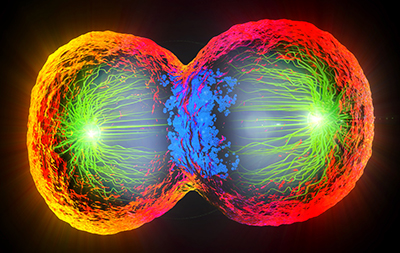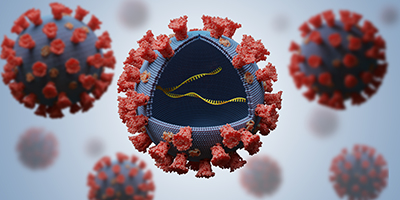Stephen Doster
-

Probing pathogen antibiotic resistance
Sep. 17, 2020, 9:00 AM by Leigh MacMillan Acinetobacter baumannii — a leading cause of ventilator-associated pneumonia — is becoming more prevalent and resistant to antibiotics. The outer membrane of A. baumannii and other Gram-negative bacteria provides a barrier against host and antibiotic stresses and is maintained by the Mla system, which has been proposed as a target for antimicrobial drug development. … Read MoreSep. 17, 2020
-

International collaboration with Vanderbilt scientists sheds light on rare exocyst mutations that cause severe developmental disabilities in children
by Marissa Shapiro Sep. 14, 2020, 9:00 AM In collaboration with Australian and Italian geneticists, Vanderbilt University researchers Mukhtar Ahmed, research assistant professor of cell and developmental biology, graduate student Christian de Caestecker and Ian Macara, professor and chair of the Department… Read MoreSep. 16, 2020
-

Laying groundwork for Tennessee’s first federally funded Alzheimer’s Disease Research Center
Sep. 10, 2020, 8:38 AM by Paul Govern Angela Jefferson, PhD, and colleagues are establishing an Alzheimer’s Disease Research Center at VUMC. (photo by Avery Haller) Angela Jefferson, PhD, professor of Neurology and director of the Vanderbilt Memory and Alzheimer’s Center, has been awarded a $3.7… Read MoreSep. 15, 2020
-

Laying groundwork for Tennessee’s first federally funded Alzheimer’s Disease Research Center
Sep. 10, 2020, 8:38 AM by Paul Govern Angela Jefferson, PhD, and colleagues are establishing an Alzheimer’s Disease Research Center at VUMC. (photo by Avery Haller) Angela Jefferson, PhD, professor of Neurology and director of the Vanderbilt Memory and Alzheimer’s Center, has been awarded a $3.7… Read MoreSep. 15, 2020
-

Sin3a regulates pancreatic β-cells fitness and function
By Sohini Roy People with type 1 diabetes generate little to no insulin, which promotes the absorption of glucose from the blood. The transcriptional coregulator Swi-independent 3 — or Sin3 — switches on and off the genes that drive crucial biological processes during prenatal development, including cellular differentiation, maturation, survival, metabolism,… Read MoreSep. 14, 2020
-

Myosin motors regulate cell shape during division
By Natalya Ortolano Myosin motors and long actin filaments accumulate at the center of dividing cells to constrict the membrane. When a bouncy ball deforms under the weight of your body, its rubber membrane stretches and contracts. Likewise, the membrane of a cell doubling itself prior to division must accommodate… Read MoreSep. 14, 2020
-

VIR-CLASP reveals new insights into cellular mechanisms of viral immune response
By Brad Davidson VIR-CLASP has the potential to find new therapeutic targets during infection by a wide variety of RNA viruses. RNA viruses invade cells and co-opt cellular machinery to replicate and translate their genomic material. To stave off infection until immune cells arrive, host cells rely on “intrinsic immunity… Read MoreSep. 10, 2020
-

Study explores the role of MYCN in Triple Negative Breast Cancer diagnosis and treatment
By Mary Alice Keller Triple-negative breast cancer is a type of breast cancer that tests negative for the three receptors that are commonly found in breast cancer: estrogen receptors, progesterone receptors, and human epidermal growth factor receptor 2 (HER2) receptors. The oncogene MYCN regulates cancer cell growth, proliferation, metabolism, and… Read MoreSep. 10, 2020
-

Vanderbilt team works across disciplines to replicate cellular filament behavior for the first time, shedding new light on a fundamental cellular process
by Marissa Shapiro Sep. 8, 2020, 12:00 PM A Vanderbilt University laboratory led by Marija Zanic, assistant professor of cell and developmental biology, has demonstrated for the first time how microtubules—filaments that are essential to many of a cell’s functions—move around in a… Read MoreSep. 10, 2020
-

Gould promoted to senior associate dean
Kathy Gould, Louise B. McGavock professor of cell and developmental biology in the School of Medicine Basic Sciences, has been named senior associate dean for biomedical research, education, and career development. Kathy joined the Vanderbilt faculty as an assistant professor after she obtained her Ph.D. from the University of… Read MoreSep. 4, 2020